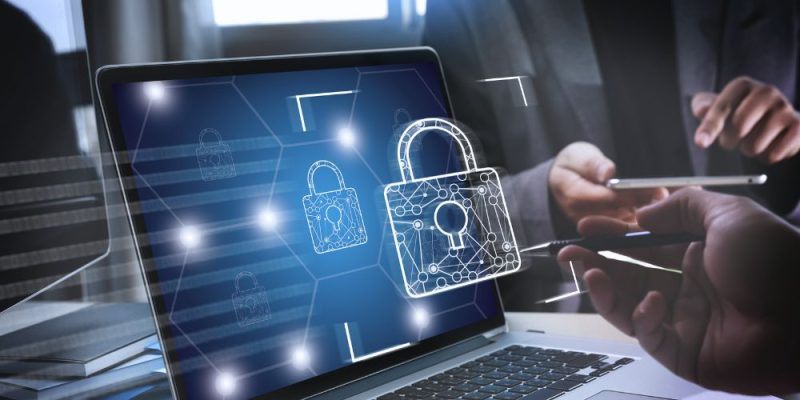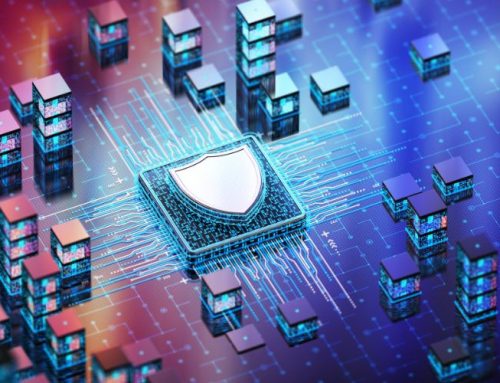A single click on a malicious email link and your business’s sensitive data can be suddenly in the hands of cybercriminals. Scary, right? That’s where endpoint security comes into play. It’s the frontline defense against cyber threats targeting your devices. In this article, we’ll dive into the basics of endpoint security, explore its vital role in protecting your business data, and highlight the severe consequences of neglecting this crucial aspect of cybersecurity solutions. Buckle up and get ready to fortify your defenses!
Understanding Endpoint Security
Endpoint security refers to the practice of securing end-user devices such as desktops, laptops, smartphones, and tablets. These devices, often referred to as endpoints, serve as points of access to an organization’s network and can be vulnerable to cyber threats. Endpoint security aims to protect these devices from malicious attacks, ensuring that sensitive business data remains safe.
Why Endpoint Security Matters
1. Protection Against Cyber Threats
Cyber threats are constantly evolving, and endpoints are prime targets. Malware, ransomware, and phishing attacks can infiltrate through unsecured devices, leading to data breaches and financial losses. Effective endpoint security measures help detect and neutralize these threats before they can cause harm.
2. Safeguarding Sensitive Data
Businesses handle vast amounts of sensitive information, from customer data to proprietary business strategies. An endpoint breach can expose this data, leading to severe reputational damage and legal repercussions. Endpoint security ensures that data remains confidential and protected from unauthorized access.
3. Compliance with Regulations
Many industries are subject to strict regulatory requirements regarding data protection. Failure to comply can result in hefty fines and legal action. Endpoint security helps businesses meet these regulatory standards by providing robust protection and monitoring capabilities.
4. Ensuring Business Continuity
A cyber attack on your endpoints can disrupt operations, leading to downtime and loss of productivity. By implementing strong endpoint security, businesses can maintain continuity and avoid the costly interruptions associated with cyber incidents.
Potential Consequences of Inadequate Endpoint Security
1. Data Breaches
Inadequate endpoint security can result in data breaches, where sensitive information is accessed and exploited by cybercriminals. This can lead to financial losses, damage to the brand reputation, and loss of customer trust.
2. Financial Losses
The financial impact of a cyber attack can be devastating. Businesses may face ransom demands, costs associated with incident response, and legal fees. Additionally, there may be indirect costs, such as loss of business opportunities and decreased market value.
3. Reputational Damage
Trust is paramount in business. A security breach can erode customer confidence and damage relationships with partners and stakeholders. Rebuilding a tarnished reputation can be a long and challenging process.
4. Legal and Regulatory Penalties
Non-compliance with data protection regulations due to inadequate security measures can result in significant legal and regulatory penalties. These fines can be substantial and may compound the financial strain caused by a breach.
Implementing Effective Endpoint Security Measures
1. Use Comprehensive Endpoint Protection Platforms (EPP)
EPP solutions provide a unified approach to securing endpoints by integrating antivirus, anti-malware, and firewall capabilities. They offer real-time threat detection and response, ensuring robust protection against cyber threats.
2. Deploy Endpoint Detection and Response (EDR) Tools
EDR tools enhance traditional security measures by providing advanced threat detection, investigation, and response capabilities. They enable continuous monitoring and analysis of endpoint activities, helping identify and mitigate threats swiftly.
3. Enforce Strong Access Controls
Implementing strict access controls ensures that only authorized users can access sensitive data and systems. Multi-factor authentication (MFA) adds an extra layer of security, reducing the risk of unauthorized access.
4. Regularly Update and Patch Systems
Keeping software and systems up to date is crucial for mitigating vulnerabilities. Regular updates and patch management help close security gaps that cybercriminals could exploit.
5. Educate and Train Employees
Human error remains a significant factor in many security breaches. Providing regular training and awareness programs for employees can help them recognize and avoid potential threats, such as phishing scams and social engineering attacks.
Final Thoughts
Endpoint security is an essential component of a comprehensive cybersecurity solution. By understanding its importance and implementing robust measures, businesses can protect their data, maintain compliance, and ensure continuity. Don’t wait for a breach to occur—take proactive steps to secure your endpoints today.
Call to Action
Contact us to learn more about our cybersecurity solutions and how we can help you implement effective cyber attack prevention strategies. Secure your endpoints, protect your data, and ensure your business continuity. Reach out now and take the first step towards a safer, more secure future!
FAQs
1. What is the difference between Endpoint Protection Platforms (EPP) and Endpoint Detection and Response (EDR)?
EPP provides preventive measures against known threats, while EDR focuses on detecting and responding to advanced threats in real time.
2. Why are regular updates important for endpoint security?
Updates and patches address vulnerabilities in software and systems, reducing the risk of exploitation by cybercriminals.
3. How can businesses ensure employee compliance with security protocols?
Regular training, clear policies, and the use of automated tools can help ensure that employees adhere to security protocols.
5. Can small businesses afford effective endpoint security?
Yes, there are scalable cybersecurity solutions designed to fit the budgets and needs of small businesses.









